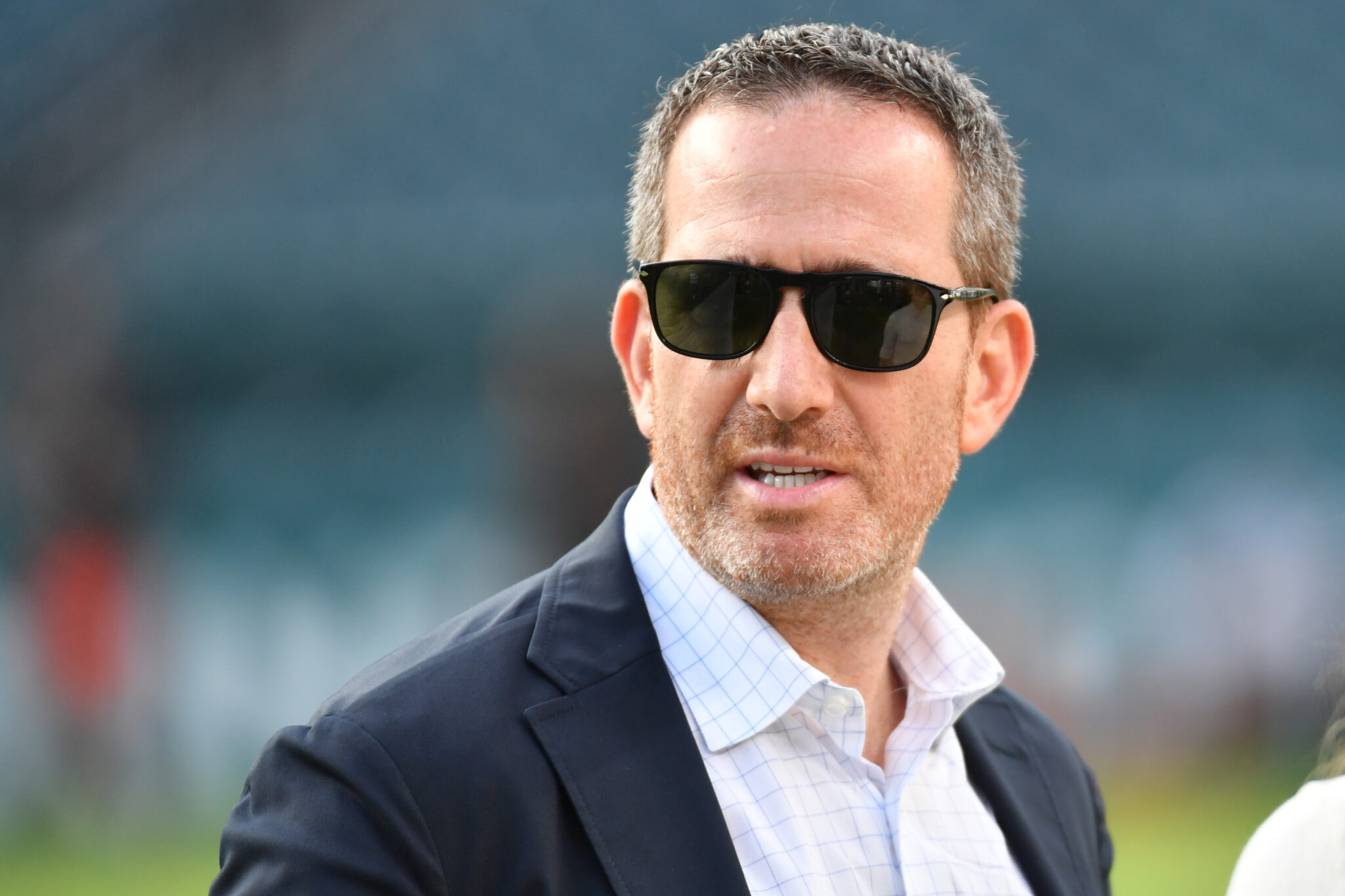The Philadelphia Eagles’ offensive strategy has shifted significantly, moving from a dynamic and unpredictable approach to a more predictable and conservative play-calling style. This transformation is not just limited to the field but is felt throughout the entire organization, contributing to the perception of the Eagles as a corporate, formulaic team.
Howie Roseman, the team’s general manager, exemplifies this shift. Roseman was known for his bold and innovative decisions in his early tenure. However, with experience and a greater sense of responsibility, he now adheres to a more conventional and structured approach. This evolution in leadership style has influenced the team’s identity and operational strategy.
This transition involved parting ways with influential and vibrant personalities from the previous regime. The former head coach Doug Pederson was known for his independence and innovative play-calling, which led the team to a Super Bowl victory. Similarly, Malcolm Jenkins, a key defensive player and vocal leader, was an outspoken activist and a significant presence in the locker room. Their departures marked a shift towards a more controlled and less individualistic team culture, aligning with Roseman’s vision of maintaining a professional and standardized organizational standard.
This evolution reflects a broader trend within the Eagles organization, balancing the need for stability and consistency with the dynamic and risk-taking spirit that once defined their approach.
Howie Roseman’s imaginative and risk-taking strategies in the past played a pivotal role in leading the Philadelphia Eagles to a Super Bowl victory. His bold moves and innovative decisions were instrumental in building a championship team. However, in his more recent tenure, Roseman has adopted a ledger book approach, focusing on securing great-value players for the roster. This method, while fiscally prudent, has resulted in a team composition that some fans feel lacks the dynamism and star power of previous squads. The mix of cost-effective but perhaps less flashy players has created a blend that, to some, doesn’t quite meet the high standards once associated with the team.
Nick Sirianni, the current head coach, epitomizes this new era. Critics argue that he embodies the conservative and less imaginative approach that now defines the Eagles. His leadership and coaching style are seen by some as tools of this more corporate and formulaic strategy, contributing to the perception that the team lacks the bold, innovative spirit that once led them to glory.
The result is a team that, while stable and cost-effective, may feel uninspired and predictable compared to the vibrant and risk-taking squads of the past. This shift has left some fans yearning for the excitement and flair that once characterized the Eagles.
South Philly Fanatics
Some believe that Philadelphia’s pride is deeply rooted in its strong Italian heritage. This blue-collar city is cold and unforgiving, with a standard for its battles being bloody and fought to the death. In Philly, there are no prisoners or ties—just wins or losses, always decided with finality.
A Coaching Carousel
The Philadelphia Eagles have a rich history of navigating coaching changes with a focus on prioritizing future success over sentimentality. This principle is deeply ingrained in the organization’s decision-making process. One notable instance was the departure of Doug Pederson, who, despite leading the team to a Super Bowl victory, faced a challenging end to his tenure due to a lack of alignment with the team’s vision for the future. This decision exemplified the Eagles’ willingness to make tough choices in the best interest of the team’s sustained success, even if it meant parting ways with a coach who had achieved significant milestones.
A Tradition of Tough Decisions
Philadelphia’s fans are known for their cruelty towards competitors but uphold chivalry and loyalty for their own. The decision to part ways with Doug Pederson, despite his monumental victory over Tom Brady and the New England Patriots in Super Bowl LII, was a controversial one. Pederson had vanquished one of the greatest players in NFL history, and many fans rebelled against letting their savior go. This move underscores the Eagles’ commitment to long-term success and their readiness to make difficult decisions to uphold the team’s prospects.
The company man
There is no coaching dilemma Nick Sirianni has been chosen to be the hollow vessel for Howie Rosmen, leading an over-micromanaged organization into the future. The vessel gives the Eagles no in-game ability to adjust, he has all of the same inability as GM Howie. No power to help his coaches and players during games.
Conclusion
Nick Sirianni’s coaching tenure with the Philadelphia Eagles has faced significant challenges, particularly in play calling and game tempo control, which are crucial aspects of a head coach’s responsibilities. One notable instance that drew criticism was during a critical game against a rival team, where Sirianni’s conservative play calling in the final minutes cost the Eagles a potential game-winning drive. This situation exemplified the impact of play-calling decisions on the team’s ability to secure victories and maintain momentum throughout the game. Such decisions can heavily influence the outcome, as the timing and nature of plays called in crucial moments can either propel a team to victory or contribute to a disappointing loss. In Sirianni’s case, this incident highlighted the delicate balance required in managing aggression and caution to optimize the team’s performance and overall success.
What will they do with Nick?
For more Entertainment articles, visit Mecella.



No responses yet